Search
Summary 
Loading AI-generated summary based on World History Encyclopedia articles ...
Search Results
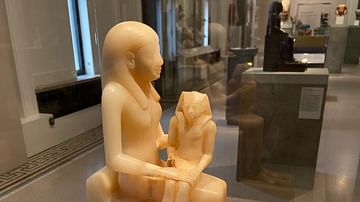
Image
Queen Ankhnes-meryre II & Pharaoh Pepi II
This alabaster statue of Pharaoh Pepi II (2284 - c. 2216 BCE) and his mother, is one of the more famous representations of the two because the statue technically has two “front” sides. By placing Pepi II and his mother in opposite directions...
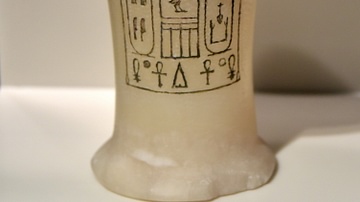
Image
Jar of Pepi II
This calcite-alabaster jar (probably was a container for cosmetic oil) is inscribed with four royal titulary names of the Egyptian Pharaoh Pepi II (2284 - c. 2216 BCE). On the left is the nomen (birth name) of Pepi II. On the right is the...
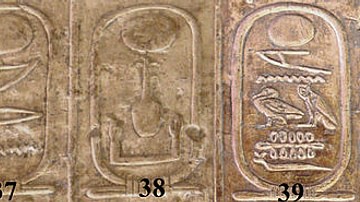
Definition
Nitocris
Nitocris (2184-2181 BCE) is the Greek name for Nitiqret, the last monarch of the 6th Dynasty of Egypt which concluded the period of the Old Kingdom (c. 2613-2181 BCE). Nitocris is best known from the story told of her by Herodotus (484-425/413...
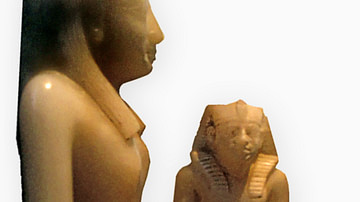
Image
Ankhnesmeryre II & Pepi II
An alabaster statuette of Ankhnesmeryre II and her son Pepi II. Egypt, 6th Dynasty, c. 2288-2224/2194 BCE (Brooklyn Museum)
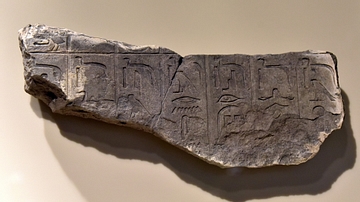
Image
Relief Showing Pepi II's Pyramid Text
The hieroglyphic signs on this painted limestone fragment show parts of spells 354 and 225 of the pyramid texts of the Egyptian Pharaoh Pepi II (2284 - c. 2216 BCE). Old Kingdom, 6th Dynasty, 2279-2219 BCE. From Saqqara, Egypt. On display...
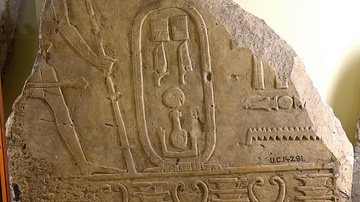
Image
Slab of Pepi II king of Egypt
This limestone slab was found beneath the sand of the Ptolemaic temple at Kopyos (Qift). At the left side, the figure of the king Pepi II looks to the right. Before him, the rope-border cartouche containing the birth-name and throne-name...
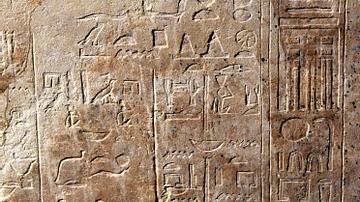
Image
Dahshur Decree of Pepi I
This is a detail of a large limestone fragment which came from the pyramid complex of the Egyptian pharaoh Sneferu (r. 2613 to 2589 BCE) of the 4th Dynasty of Egypt. This is one of the very few and important legal texts from the Old Kingdom...

Image
Fragment from pyramid of king Pepi I
This limestone block fragment came from the debris of the north wall of the antechamber within the pyramid of king Pepi (Pepy) I at Saqqara. The fragment contains 5 vertical columns of green-filled hieroglyphic inscriptions. The cartouche...
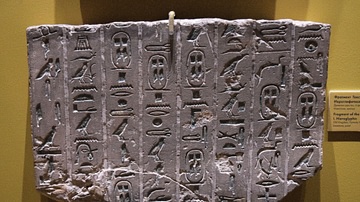
Image
Fragment of Pepi I Meryre's Pyramid Texts
This fragment of limestone contains text in ancient Egyptian hieroglyphics that was found in the pyramid of Pharaoh Pepi I Meryre (r. c. 2335–2285 BCE). (Pushkin Museum, Moscow)
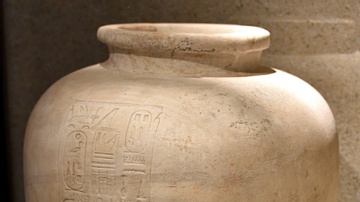
Image
Jar of Pepi I
The hieroglyphic signs on this calcite-alabaster ovoid jar mention the name the Egyptian pharaoh Pepi I and his Sed festival, in addition to naming the pyramid complex of Pepi I (r. 2335-2285 BCE) at Memphis, the capital of the Old Kingdom...